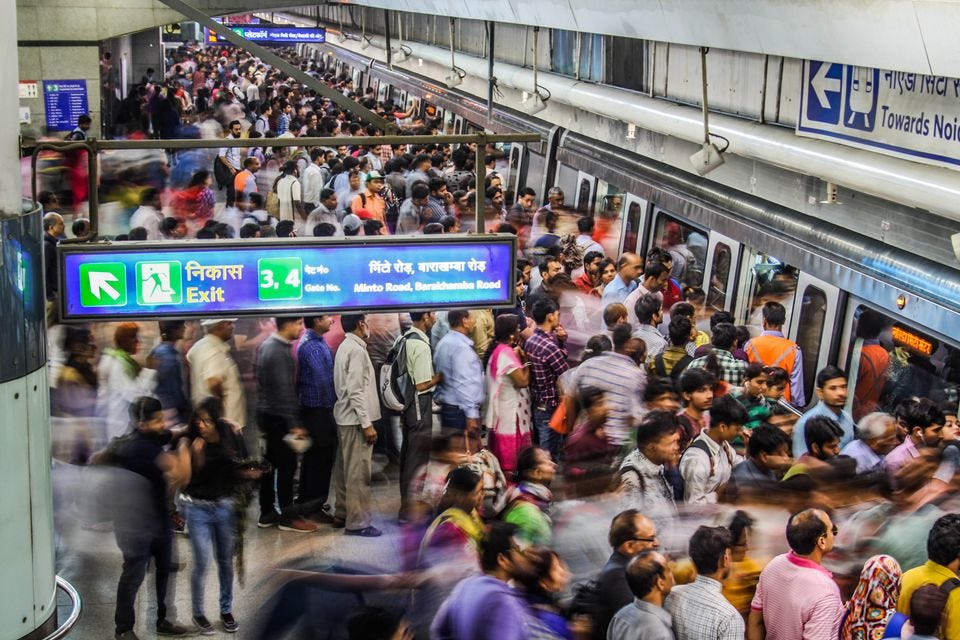When you're late for work on the Delhi metro
It's 9:30 am and we're at the Saket Metro. Things are quite tense here. Queues are long, the humidity intolerable, and the people even more so. We shout at each other for breaking the queue, for getting too close, for being too slow. In our anger, frustration, despair, it feels like we’re all saying the same thing: “I'm already suffering. Please don’t make it worse.”
When I think of collective joy, my mind goes to the 2011 Cricket World Cup: Dhoni’s six to finish it in style. When I think of collective despair, I imagine Saket Metro at 9:30, filled with those of us who are already late, who are preparing themselves for judgemental glares, who are on the back-foot before their day even begins.
In our anger, frustration, despair, it feels like we’re all saying the same thing: “I'm already suffering. Please don’t make it worse.”
If a researcher wanted to understand how certain HR policies affect human behaviour, a metro station in the morning offers a fabulous destination. You could stand there with a notepad and stop every young person running to the train and ask “Could you explain to me why you’re running?”
“Because I need to reach office by 10.” they would stop and say.
“What’s at 10?” would be the natural follow-up.
“Nothing. There’s nothing at 10.” they would respond, sighing.
A BlinkIt delivery person recently reached my house exactly 10 minutes after I'd placed my order. After he reached, it took him 10 more minutes to spread out all 20 items he’d brought on the floor to take a picture. That's 10 minutes delivering, and another 10 for the picture. While I tried to help with the spreading out (it’s the least I could do, after shamefully being too lazy to walk a few steps to the local store), he vented: “Kya kare sir? Company ki policy hai.”
I wonder if the MBA executive who came up with this process pictured this exact situation in her head. What's more likely is that the problem was 'missing items in delivery' and the simple solution 'include clicking pictures in the delivery personnel's process.' Problem solved.
What's my point? That strange things happen when MBAs think up systems for robots and apply them to people. It pits people against a standard set by robots: Why can't I be on time? I could’ve slept earlier. I could’ve been less distracted in the morning. I could’ve just stopped being human.
A depressing but useful resume tip follows from this: write one as if you’re a robot. Always on time. Never misses deadlines. Comes with advanced critical-thinking features. Emotions never interfere. Latest updated skillsets installed. Error-free output. Lasts 8 hours on single charge.
I don’t think there’s a word for it yet, the palpable feeling that engulfs the Saket metro at 9:30 am, but here's the working definition: the despair humans feel when they fail at being robots.


